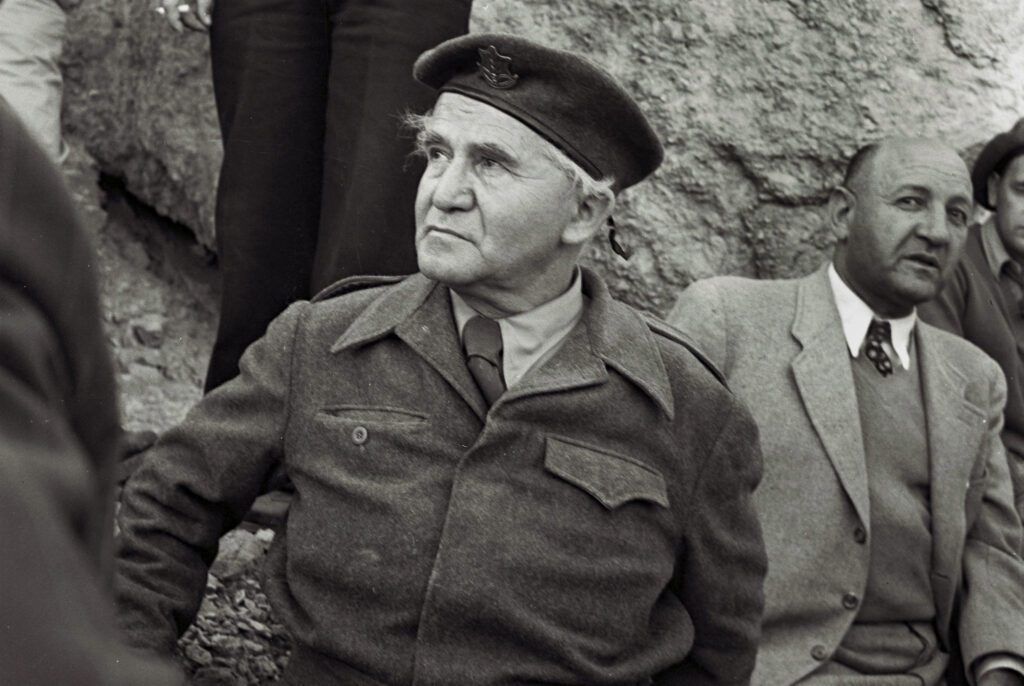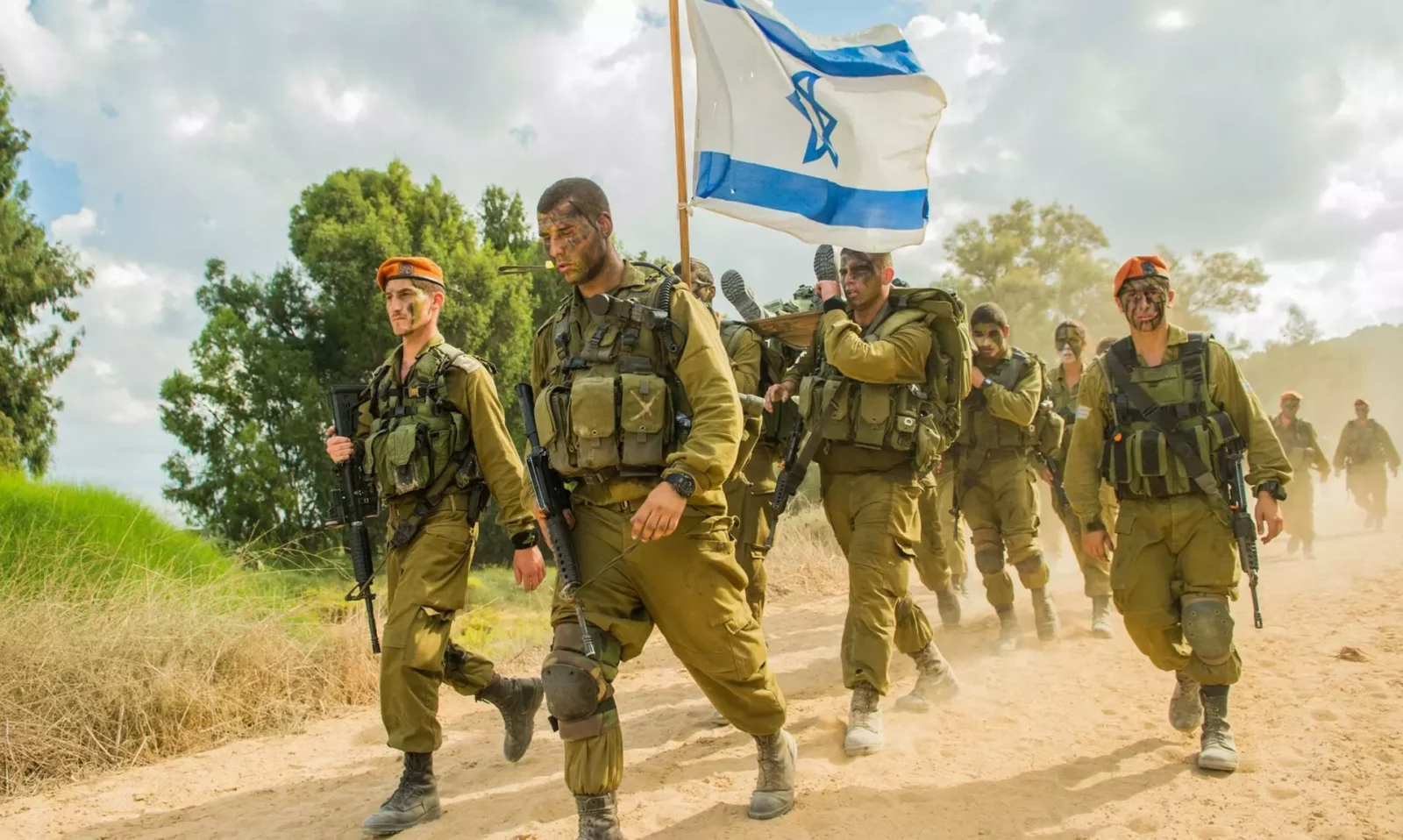Colonel R1 Ernani Humberto Teixeira de Paula Filho
In 1897, the first World Zionist Congress (WSC) took place, a historical fact in which Theodore Herzl, a young Viennese journalist, proposed the materialization of the dream of every son of Israel: the creation of his State. Herzl imagined a massive return of the Israelites, joining the rarefied pioneers who already inhabited the land of the hills of Zion.
In view of this future aspiration, barren areas were acquired in this region in order to establish the first kibbutzim, with the Jewish National Fund, established through the JSC, as the financial backing.
With the expansion of these collectivized areas, the need for the Jews themselves to establish their own security was brought to the fore, aiming at independence from the protection hitherto exercised by Circassian guards.
As a result, the Hachomer was created, the embryo of the Jewish army, composed of Jewish volunteers (the chomrins) who rode through the lands of Palestine with two well-defined purposes: the active defense of their communities, and, mainly, a revival of the warrior adventures that occurred in Antiquity.
The First World War changed the scenario in the Middle East. The Turks began to reject the existence of Hashomer, as they would not tolerate a subversive Jewish “army” at the gates of their great empire.
The leaders were imprisoned and the faction disbanded. Faced with this protective vacuum, the Turkish massacres began. Faced with this explosion of unrestricted violence, the Jews who still remained in Palestine came to the conclusion that a Jewish army was fundamental to the future nation. They needed to start over.
Taking advantage of the belligerent context, they proposed to the English the creation of a Jewish army to fight the common enemy, the Turks. Faced with the refusal of the English, only the formation of non-combatant Jewish units, called the Muleteers of Zion, was tolerated, with the mission of logistical replenishment of the English soldiers, considered a second-order mission.
This task was obviously far removed from the objectives outlined by the Jews, a situation that led to political negotiations with the English government, which ultimately authorized the creation of a (armed) Jewish Legion consisting of three battalions.
Jewish morale was greatly improved in November 1917, when Arthur James Balfour, the British minister, looked favorably on the establishment in Palestine of a national center for the Jewish people. In other words, the Balfour Declaration formalized the possibility of legally creating an embryonic Hebrew State.
The Legion, motivated by the Declaration, proved to be even more virile and bellicose, impressing the English as to the warlike capacity of the legionnaires and leading them to the decision to ban it.
The Hebrew deliberation could not have been otherwise: they created an illegal and clandestine army, called Haganah, based on the theory of revolutionary armies and with the full support of the population, but evoking Havlagah, also called the theory of moderation, in order to avoid friction with the English.
The Arab revolts altered the peaceful coexistence between Jews and the English. A restriction on Jewish immigration was announced by the British in order to calm the spirits of the rebellious Arabs, who were angry about the Jewish presence in the region. The Havlagah began to be opposed by the “chosen people”.
The first split in the Haganah occurred: on one side, the traditional Haganah, which was defensive and always moderate, and on the other, the Haganah Leumi, whose vocation was offensive action. The Leumi men were insidious, good at stealthy combat, but needed operational refinement.
This was achieved with the good teachings of English Captain Orde Wingate, respected by the Jews for his staunch Zionist stance and for having convinced the British to agree to the creation of the Special Night Squads, composed of Jews and commanded by Englishmen, with the mission of assisting the English police and army in the task of defending the pipe-line of the Irak Petroleum Company.
Wingate gave himself the task of training the best men of the Haganah, creating the legendary Midnight Commandos. From that moment on, the Haganah had a shock troop with no equivalent in the Arab world, with men capable of exceptional feats.
With the outbreak of World War II, new pressures were brought to bear in Palestine: the Arabs forced the British to stop Jewish immigration to the region and prohibited the sale of land to Jews, a situation further problematized by the enactment of the Nuremberg Racial Laws in Germany, an offense to the Jews.
It was in this context that the Haganah Leumi changed its name to Irgum Zvai Leumi, or simply “Irgum,” a radical, right-wing, offensive faction dedicated to the combatant elite and that gloried in the fire of combat, both in urban guerrilla warfare and terrorism, totally despising the Havlagah.
Despite Arab demands, the Irgunists continued with their deadly reprisals, actions that caught the attention of the British and that further restricted Jewish immigration, practically restricting the entry of Jews into Palestine.

It was in this context that David Ben-Gurion called everyone together and informed them that a new era was beginning: that of combatant Zionism, with total contempt for the Havlagah and for British determinations, and building a leftist Haganah shock troop composed entirely of Jewish sabras, the Palmakh, a substitute for the Midnight Commandos, with the objective of creating new kibbutzim and introducing thousands of illegal Jewish immigrants to Palestine.
By 1940, a new debate arose as to whether the Irgunists should continue neutralizing the British or enter into an alliance against their chief enemy, Hitler. Most chose to ally themselves with the British, with the exception of the ultra-radical Avraham Stern, leader of the Lokhamei Heruth Israel, or “Lehi” for short, a resolute group, fanatical for Jewish independence, and prone to suicide operations.
There were, therefore, three well-defined clandestine factions in the Israeli fighting spectrum: the Haganah, financed by the Jewish Agency; the Irgum, aided by the Hebrew Committee for National Liberation; and the Lehi, without any financing, which led it to attack British banks and merchants in search of financial ballast.
The English reprisals were intensified to the point where Jews were forbidden to wear the millennial shoffar and the Haganah was intolerantly suppressed. In response, both the Irgum and the Lehi promoted hostile actions that angered the leader Ben-Gurion himself, such as the bombing of the King David Hotel and the assassination of the English minister Lord Moyne.
This led to the enactment of a ruthless plan against the Irgum and the Lehi, initiating the so-called “Hunting Season” against these two groups, a shameful period in which the Haganah went on to persecute the Jews themselves.
With the end of the war (and Hitler’s death), the three armies were united, and went on to wage armed struggle against the British and to have one single objective: to be the Jewish resistance in Palestine, the so-called Tenuat Hameri, which, in search of optimum operability, came under the direction of a common general staff.
By 1947, the persecuted in Palestine became the British, forced to take shelter in ghettos surrounded by barbed wire, a radical change that foreshadowed the creation of one of the most capable armies in the Middle East responsible for the defense of the nation created in May 1948, the State of Israel.
*** Translated by the DEFCONPress FYI Team ***
